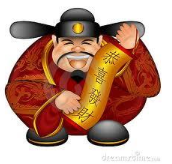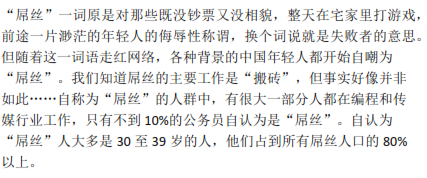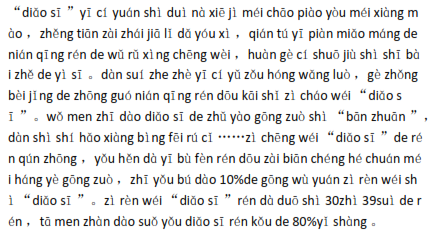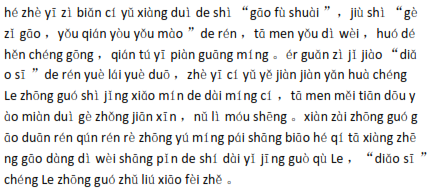

The term diaosi originated as an insult for a poor, unattractive young person who stayed at home all day playing video games, with dim prospects for the future -- in other words, a loser. Yet as the term went viral on the Internet, Chinese youth from all backgrounds began to embrace it.We've heard that the diaosi's main profession is "moving bricks" , but this doesn't seem to be the real situation... Programmers and media industry workers had the highest percentage of self-identified diaosi, but only fewer than 10 percent of civil servants self-identified as diaosi.The diaosi identity is strongest in the 30 to 39 year-olds, with more than 80 percent identifying as such.


It has become a self-deprecating counter to the gaofushuai, or the "tall- rich-handsome," those with status, success, and bright futures. The number of people who refer to themselves as diaosi has continued to grow, and it is slowly transforming into a descriptor of the ordinary Chinese citizen who faces everyday struggles and hardships. The time of the sought-after high-end Chinese consumer, drawn to high-end brands and other symbols of status, may be ending. In their place, the diaosi are poised to become the mainstream consumers in China.











